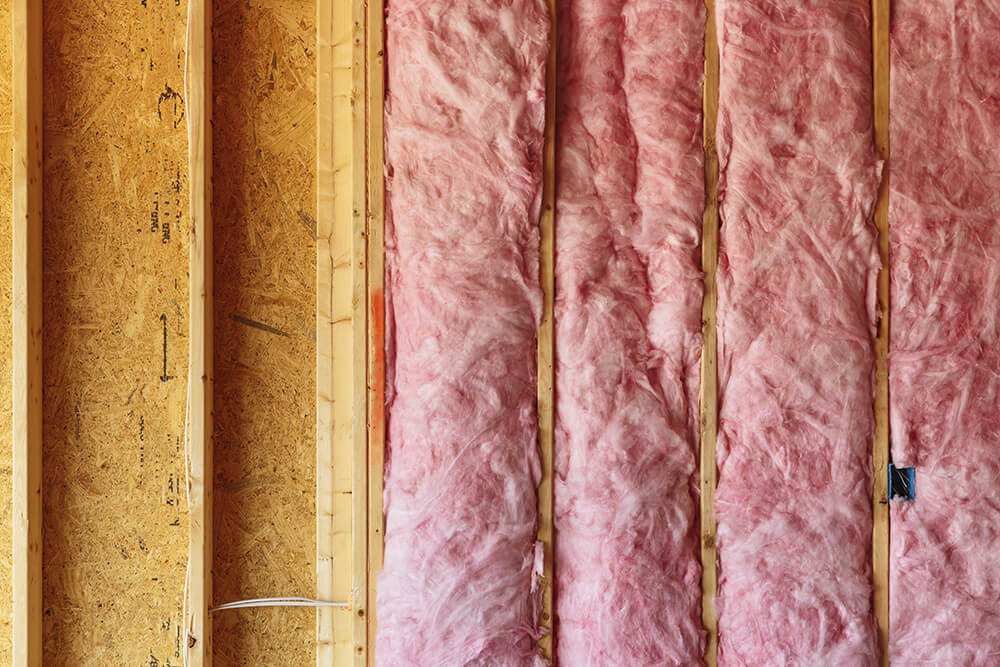Residential Insulation FAQs

Prior to scheduling an insulation job, take the time to have your questions answered. Photo: Atticare Construction ©2021
Do you have questions about an upcoming insulation project or insulation in general? Below, we answer some commonly asked questions about residential insulation.
Q: What’s the purpose of insulating my home?
A: Insulation resists the flow of heat, so it will keep your house cooler in the summer and warmer in the winter. Heat always looks for a cooler area, which means it will flow out of the house in the winter and into the house in the warmer months. If you can reduce heat flow, a well-insulated house uses less energy to heat and cool. Insulation also acts as a sound absorber.
Q: Which parts of my house should be insulated?
A: The attic is by and large the most important area of your home to insulate. Since heat rises, an uninsulated attic can be a significant source of energy loss that makes it more difficult (and expensive) to maintain a comfortable indoor climate. However, the attic isn’t the only place for insulation: It should also be installed in external walls, basement walls, vaulted ceilings, floors over unheated garages or porches, and between internal walls (particularly the bathroom, lofts or floors).
Q: What does R-value mean?
A: R-value is a measure of how well a layer of insulation (or any other two-dimensional barrier) resists the conducive flow of heat. Insulation manufacturers always print the R-values of their products on the labels or bags. Most of the time, R-values will be printed on the facings of fiberglass batts and rolls.
Q: How can I get the best performance from my new home insulation?
A: Besides the quality of the insulation itself, the installation of the insulation is a crucial aspect of its performance. Regardless of the insulation type, the full R-value can only be achieved with proper installation. For this reason, be sure to choose a qualified home insulation contractor.
Q: When adding insulation to my home, do I need to remove the old insulation?
A: Since R-values are cumulative, it’s usually not necessary to remove existing insulation when installing new insulation. However, depending on the circumstances, your contractor may deem it worthwhile or necessary.
Q: What options do I have when choosing insulation?
A: You can choose from many types of insulation, including cellulose, spray foam and fiberglass. For residential homes, the most common types are fiberglass and cellulose. You also have the option of batting (thick blankets) or blown-in (loose fill) insulation. Your contractor can recommend which options make the most sense for your attic.
Q: Why choose a Diamond Certified insulation company?
A: Diamond Certified makes it easy to find a quality insulation contractor by offering a list of local, top rated companies that have passed the country’s most in-depth rating process. Only insulation companies rated Highest in Quality and Helpful Expertise® earn the prestigious Diamond Certified award. Most companies can’t pass our ratings. American Ratings Corporation also monitors every Diamond Certified company with ongoing research and ratings, and your insulation work is backed by the Diamond Certified Performance Guarantee. So, you’ll have confidence when you choose a Diamond Certified insulation contractor.
Use Diamond Certified Resource to find top rated companies.
Local, Top Rated Diamond Certified Companies Related to Your Topic
Santa Cruz County Insulation Contractors
Contra Costa County Insulation Contractors
Solano County Insulation Contractors
Santa Clara County Insulation Contractors
Napa County Insulation Contractors
Related Articles
The Homeowner's Guide to Insulation
Get Expert Advice From Owners of Top Rated Local Companies
Become a Diamond Certified Preferred Member (Always Free)